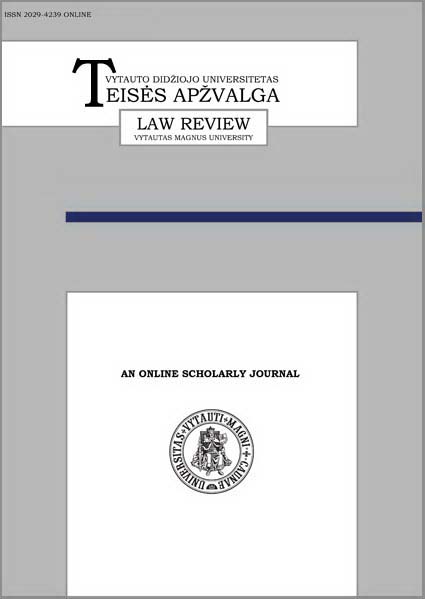Flexibility, Unpredictability and Control of Victim Status According to Art. 34 ECHRr in Recent Cases of the ECtHR
Flexibility, Unpredictability and Control of Victim Status According to Art. 34 ECHRr in Recent Cases of the ECtHR
Author(s): Dimitris LiakopoulosSubject(s): Law, Constitution, Jurisprudence, International Law, Human Rights and Humanitarian Law, Victimology, EU-Legislation
Published by: Vytauto Didžiojo Universitetas
Keywords: Art. 34 of the ECHR; ECtHR; Victim status; Flexibility; Unpredictability; Art. 2, 3 of the ECHR; Protection of human rights; Reasonable and convincing evidence; Margin of appreciation;
Summary/Abstract: The present work has attempted to shed light in a comparative way on some interpretative and other elements that the European Court of Human Rights (ECtHR) obtains through its jurisprudence in cases concerning the status of victim. Each case is different. The arguments presented are different. For this reason, this work makes use of the principles of flexibility, unpredictability and evaluation of the victim status according to the “commands” of the case and of the society in which we live in order to better analyze and interpret the arguments under examination. The rigorous and restrictive interpretations of the past are calculable, but not necessarily used even in today's cases as we examine in the following two cases: M.A. and others v. France and M.A. and others v. Poland. The main result of the present work is that the facts are different but the topics in common remain the status of victim, the protection of human rights, and the right of access to justice as well as the criteria used by the ECtHR itself.
Journal: Teisės apžvalga
- Issue Year: 2024
- Issue No: 2(30)
- Page Range: 3-18
- Page Count: 16
- Language: English

